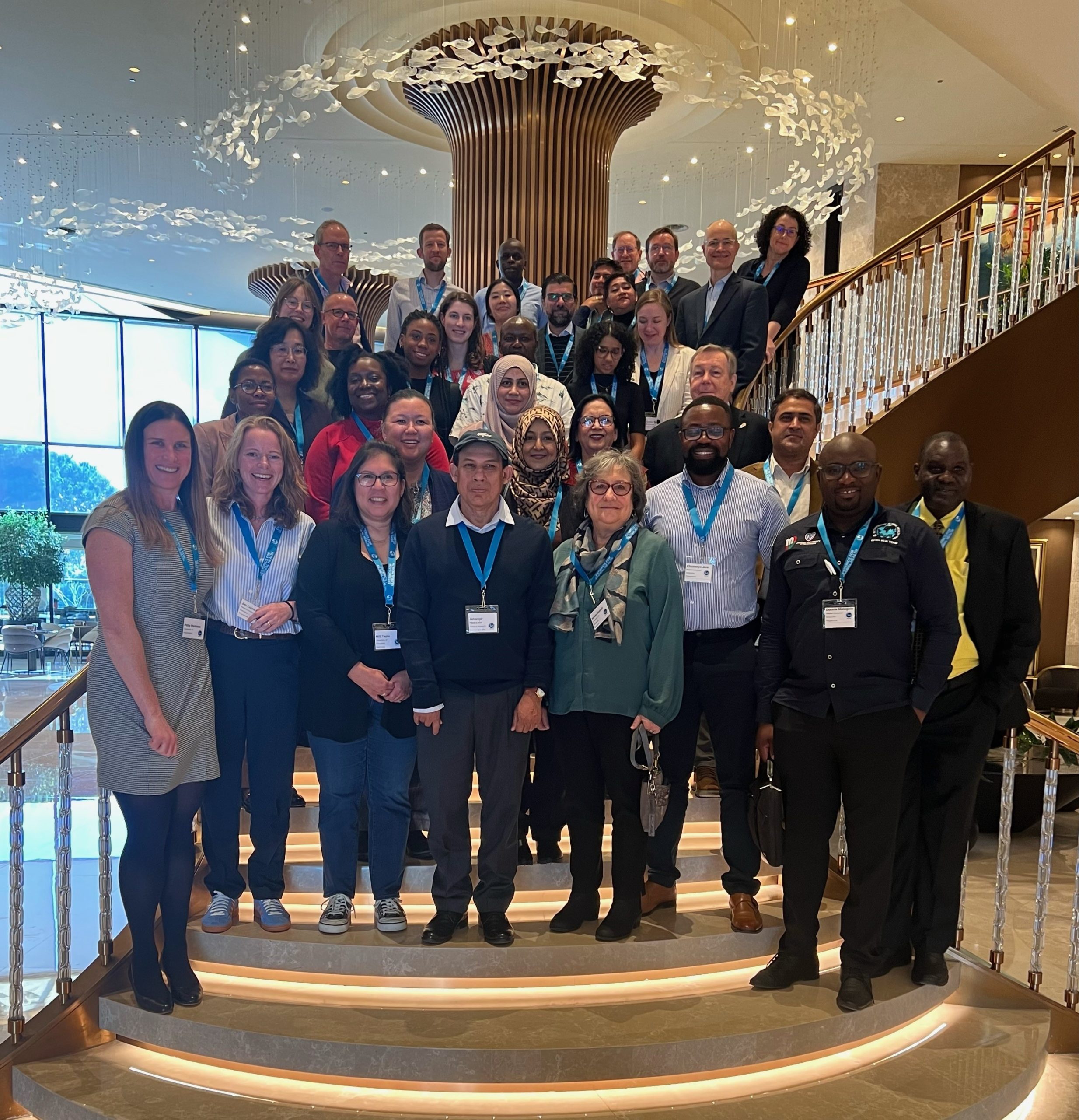February 28, 2024
EFGH collaborators convene in Istanbul for pediatric diarrheal disease research

Enterics for Global Health collaborators at the InterContinental Hotel in Istanbul, Turkey. (Photo: Emily Allen)
Collaborators of the Enterics for Global Health (EFGH) Shigella surveillance study recently attended a three-day convening in Istanbul, Turkey. The study’s second annual convening gathered nearly 40 collaborators for a series of scientific updates, data analyses planning, and discussions to guide the research consortium into the final stages of the study.
Consortium collaborators are based at seven country sites, The Aga Khan University (Pakistan), Asociación Benéfica PRISMA (Peru), Center for Vaccine Development (Mali), International Centre for Diarrhoeal Disease Research (icddr,b) (Bangladesh), Kenya Medical Research Institute-Center for Global Health Research (Kenya), Malawi Liverpool Wellcome Programme (Malawi), and The Medical Research Council Unit The Gambia (The Gambia), and at U.S. institutions (Emory University, University of Maryland, Baltimore, University of Virginia, University of Washington).
To determine the location of the second EFGH Convening, the University of Washington team discussed priorities and concerns for conference equity in global health at length with the consortium and aligned on top considerations such as ease of visa, total travel time, and geographic proximity to study sites. Turkey proved to be a central and accessible location for the majority of study sites which attributed to a highly-attended and engaged three-day convening. With careful logistical planning and thoughtful scientific agenda development, the convening was a success as the Consortium transitions to planning for results dissemination and future partnership opportunities.
Convening objectives included:
- Presenting updates on study activities and timeline, including reflections on learnings and challenges from the first year of the study
- Obtaining consensus on proposed co-writing processes and authorship models for primary paper
- Obtaining consensus on organization of primary aims into Consortium manuscripts
- Brainstorming future grant ideas that aim to leverage the EFGH consortium and infrastructure
The Consortium prioritized discussions on advancing equitable research partnerships through shared decision making, open communication and bi-directional feedback, capacity building, and knowledge sharing. The Consortium leverages the unique scientific expertise, strengths, challenges, and histories of each study site to explore new funding and coordination models to advance global health equity and produce high impact science.
We look forward to sharing future updates as the study progresses.